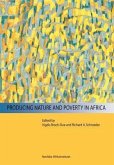Although comprehensive and ecological approaches to early childhood prevention are commonly advocated, there are few examples of long-term follow-up of such programs. In this monograph, we investigate the medium- and longterm effects of an ecological, community-based prevention project for primary school children and families living in three economically disadvantaged neighborhoods in Ontario, Canada. The Better Beginnings, Better Futures (BBBF) project is one of the most ambitious Canadian research projects on the long-term impacts of early childhood prevention programming to date. Bronfenbrenner's ecological model of human development informed program planning, implementation, and evaluation. Using a quasi-experimental design, the BBBF longitudinal research study involved 601 children and their families who participated in BBBF programs when children were between 4 and 8 years old and 358 children and their families from sociodemographically matched comparison communities. We collected extensive child, parent, family, and community outcome data when children were in Grade 3 (age 8-9), Grade 6 (age 11-12), and Grade 9 (age 14-15). The BBBF mandate was to develop programs that would positively impact all areas of child's development; our findings reflect this ecological approach. We found marked positive effects in social and school functioning domains in Grades 6 and 9 and evidence of fewer emotional and behavioral problems in school across the three grades. Parents from BBBF sites reported greater feelings of social support and more positive ratings of marital satisfactionand general family functioning, especially at the Grade 9 follow-up. Positive neighborhood-level effects were also evident. Economic analyses at Grade 9 showed BBBF participation was associated with government savings of $912 per child. These findings provide evidence that an affordable, ecological, community-based prevention program can promote long-term development of children living in disadvantaged neighborhoods and produce monetary benefits to government as soon as 7 years after program completion.








